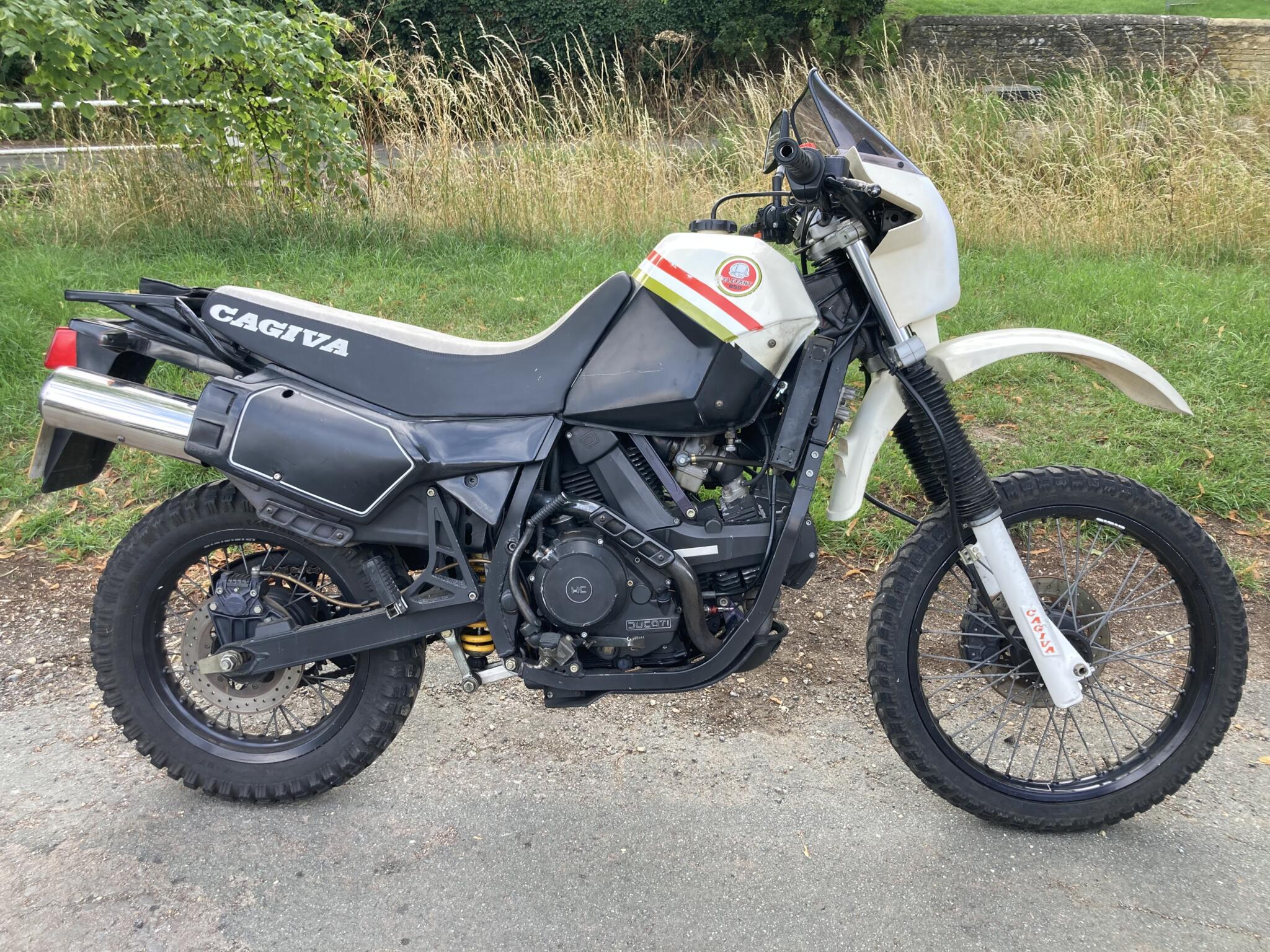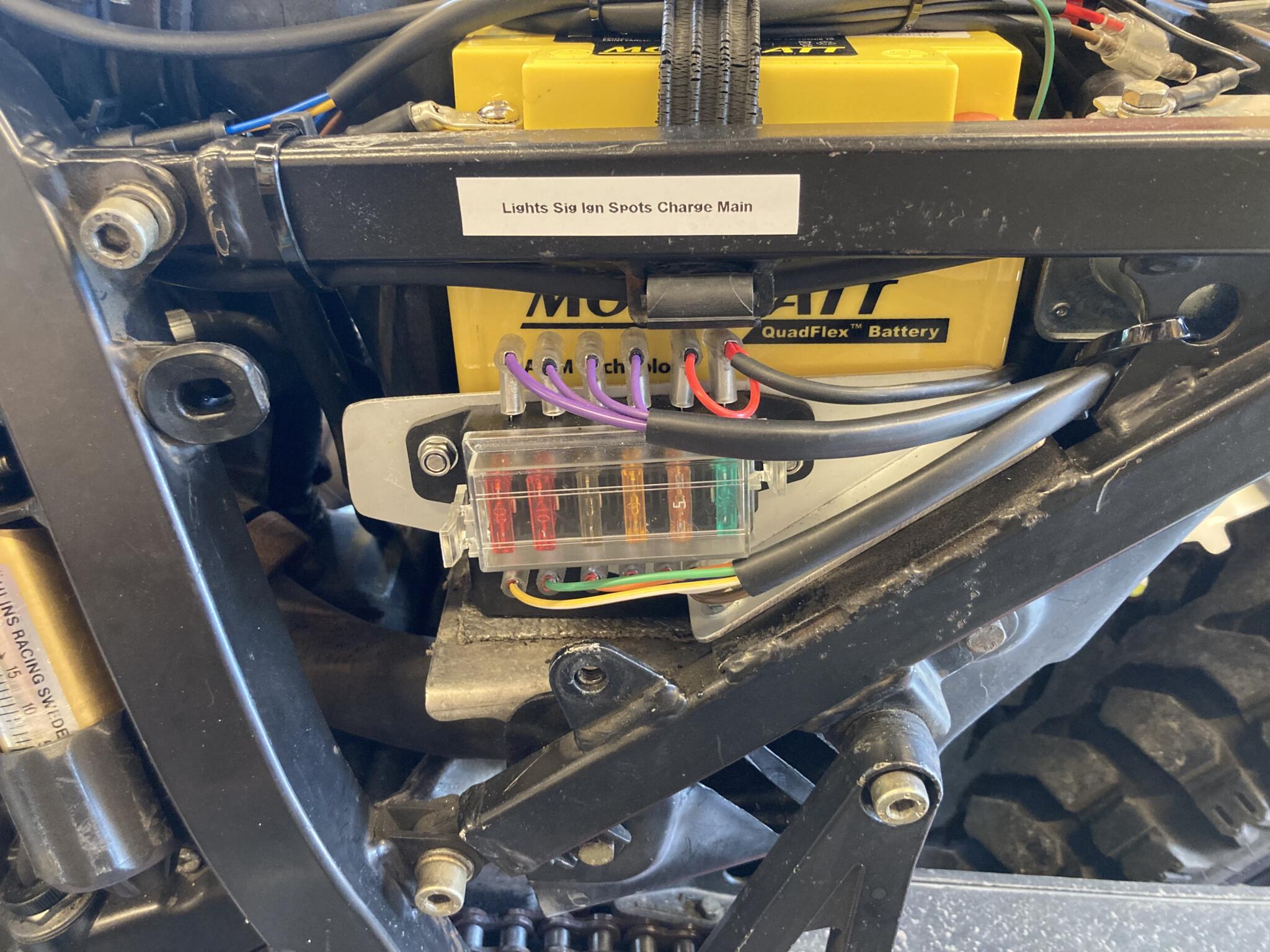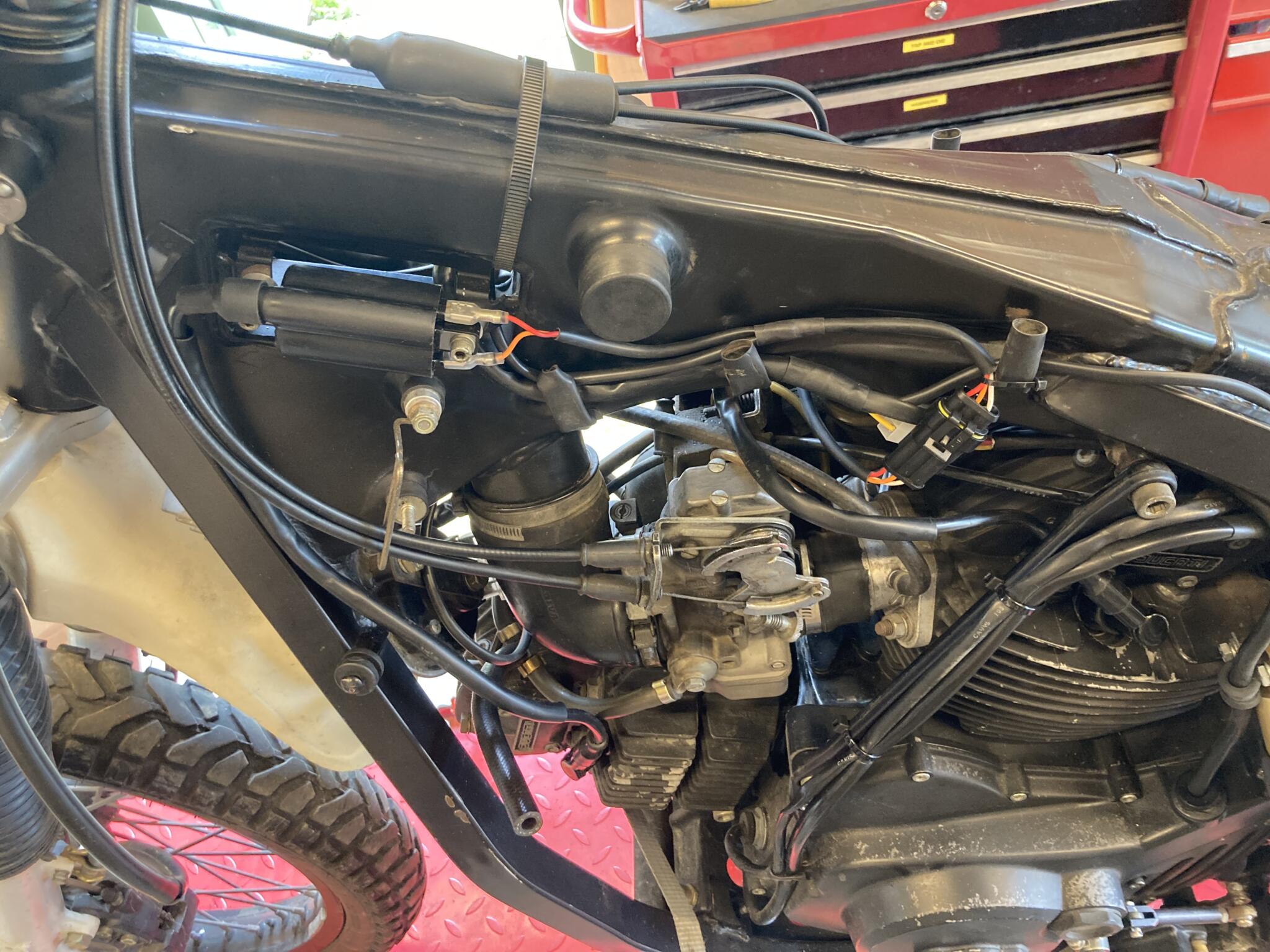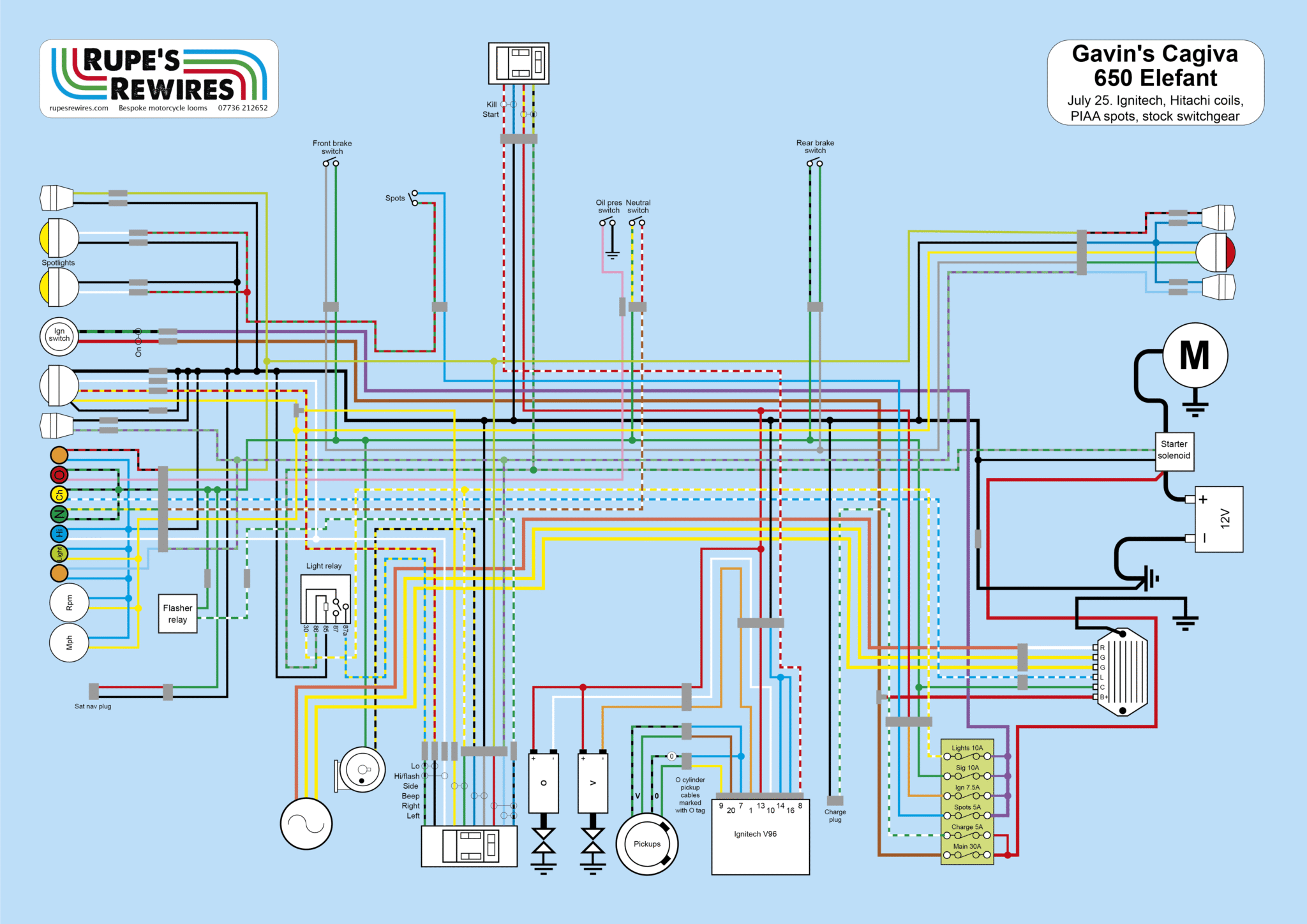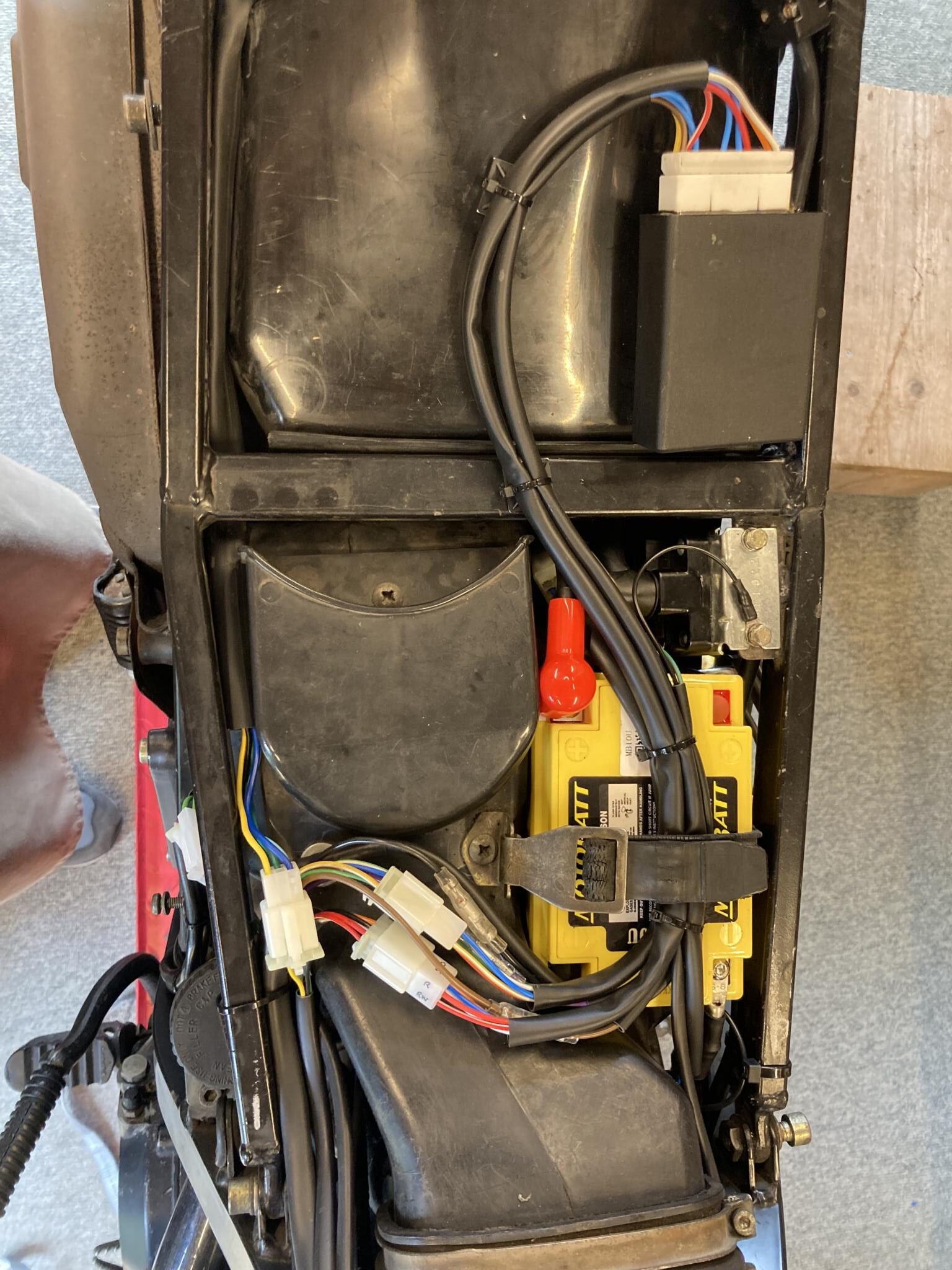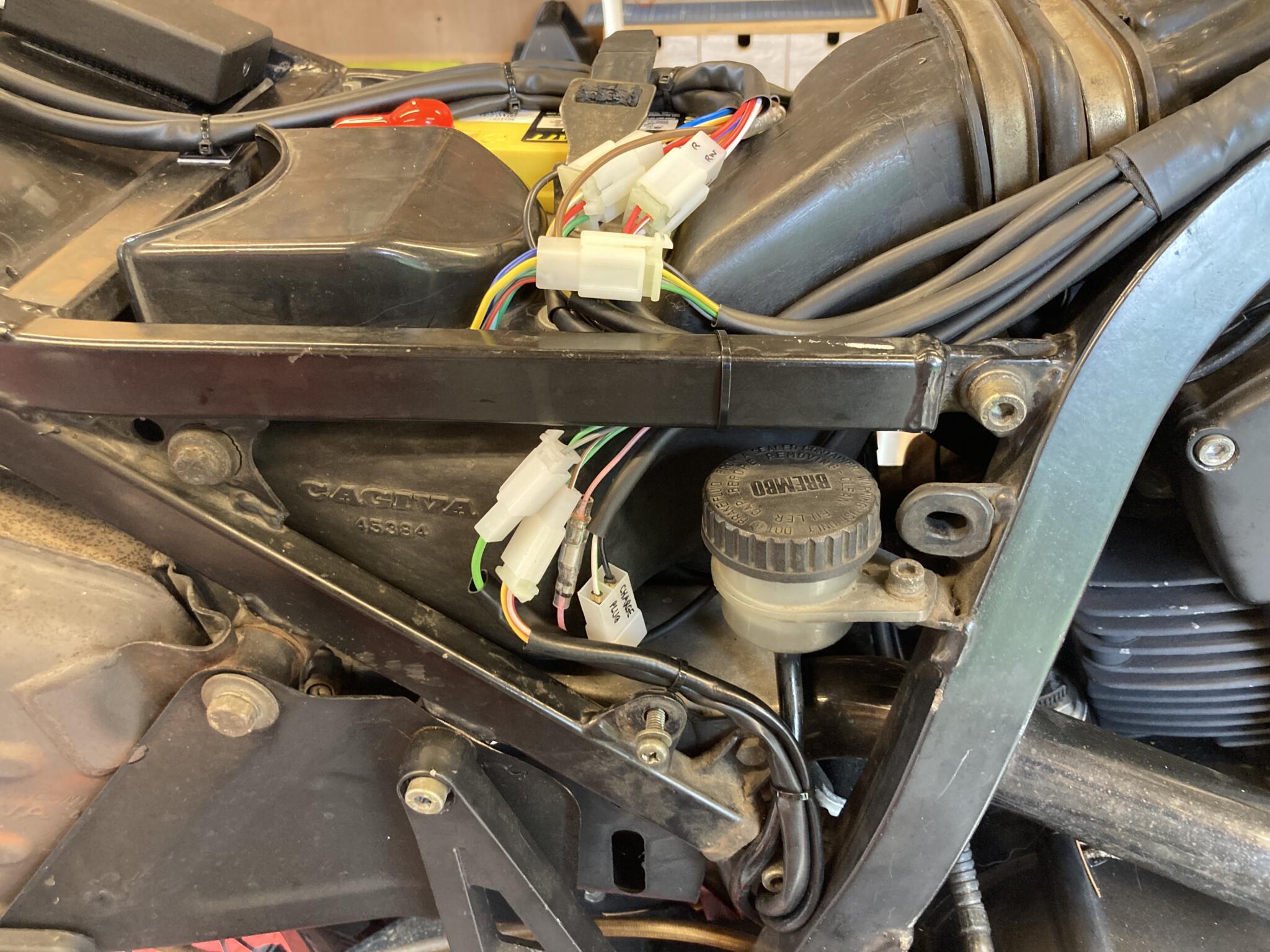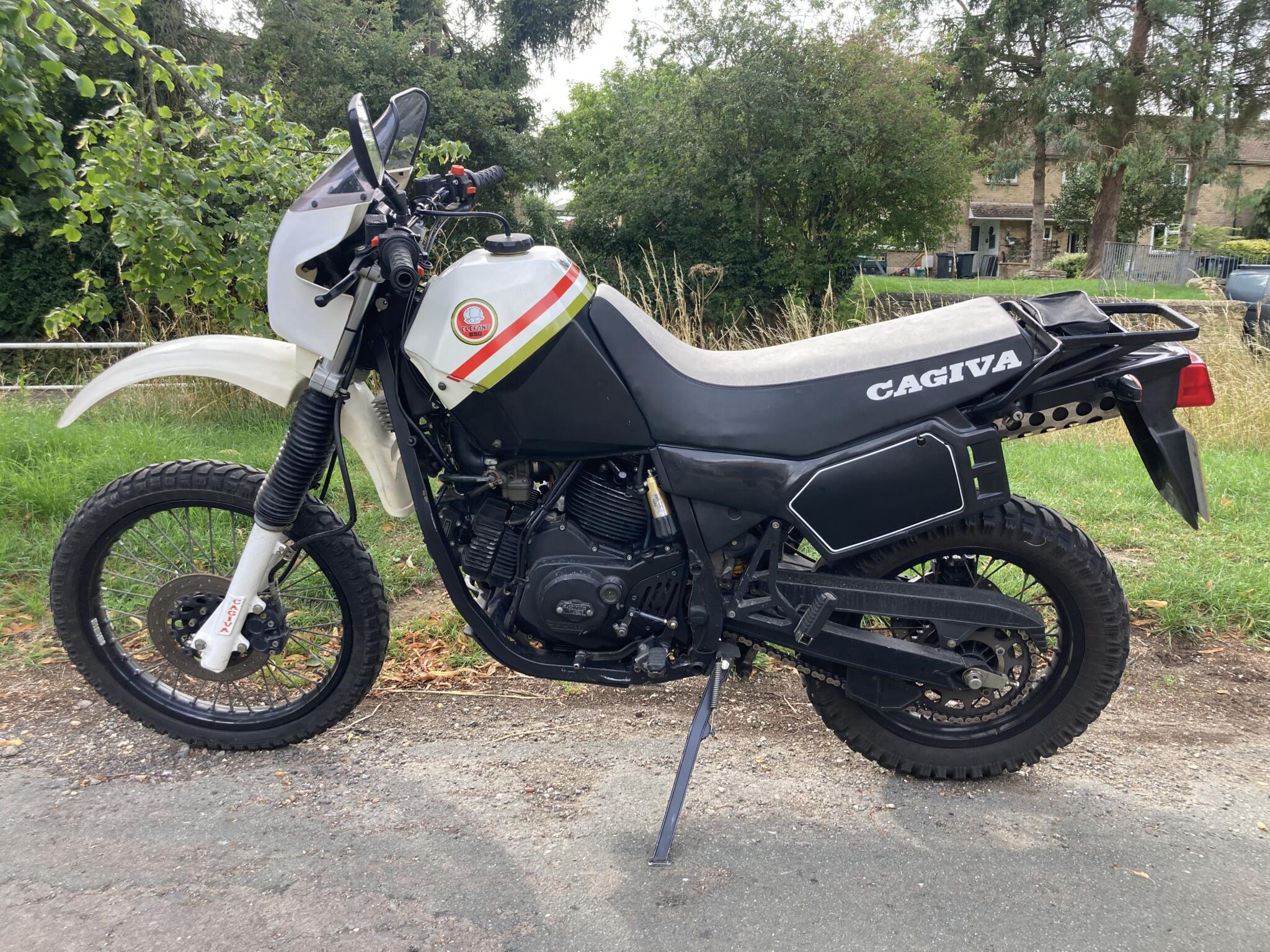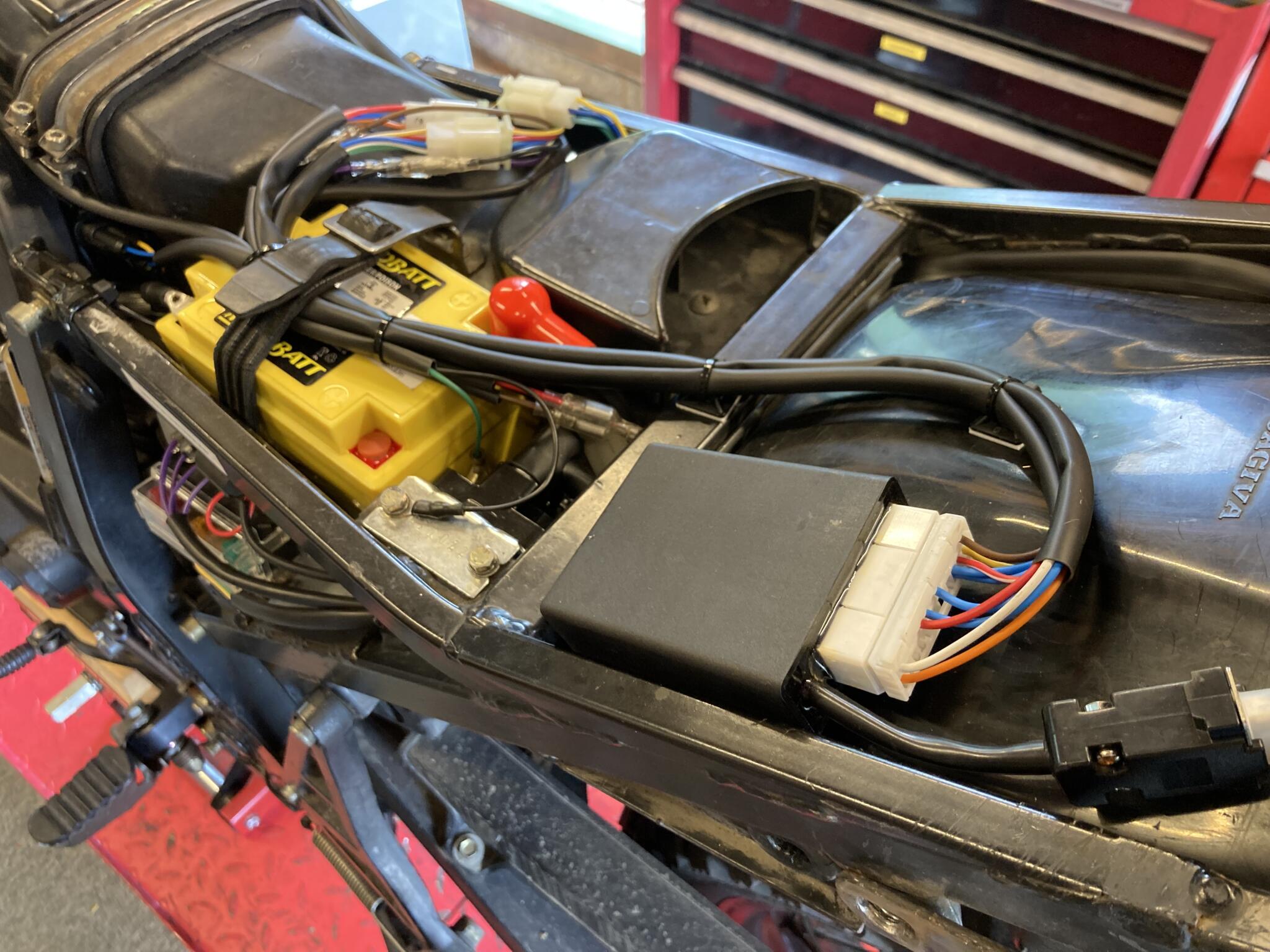
Ignitech ignition box could theoretically go up front where one of the original Bosch amplifiers lived. But we decided under the seat was a better bet
Gavin’s Cagiva 650 Elefant
Gavin brought a Cagiva Elefant over earlier this year, and I made a loom for it. At the time the bike was going to be a Paris Dakar race replica, which you can see here. But it needed more mechanical work than Gavin initially thought, so he found this pretty tidy 650 Elefant, and asked me to adapt the loom for this second bike.
The desert bike was a replica of a Cagiva factory racer, with the battery in the tail pack. This in turn allowed lots of space for the ignition box, fuses, flasher unit and connector plugs. Moving the battery back to its normal place meant redesigning where all of these electrical items would go.
Originally the 650 Elefant had quite a basic Bosch ignition, which consisted of two amplifiers which sat either side of the frame under the tank. It’s not a great idea to keep running these into their third decade, and Gavin had chosen an Ignitech system because it’s a much more flexible and adaptable solution. Affordable too.
I could have fitted the Ignitech box on a custom aluminium plate, up front where the old Bosch units were, but that would have meant remaking the whole loom. Instead I worked out that it just fitted on the rear mudguard without the seat pressing on it. The box is fixed in place with 3M Dual Loc. It’s not too pretty, but it works.
Meanwhile the six-way fuse box squeezed between the battery and side panel, and handles separate fuses for PIAA spots and a sat nav.
I’ve done quite a few of these 1990s Ducati motors and they all get decay on the cable insulation for the pickups and alternator. Sometimes they are totally knackered; other times you can cut back to healthy insulation and copper strands, and take it from there. This bike was not too bad fortunately. But I had to do some experimentation to get the pickups aligned with the right input on the Ignitech box. The crucial thing is to check the factory labelling of the pickups: V for Verticale (Ignitech pin 20), O for Orizontale (pin 9).
It fired up eagerly and Gavin is planning a bit of sympathetic running restoration to finish the conversion from tired stock machine to handy everyday trailie.
